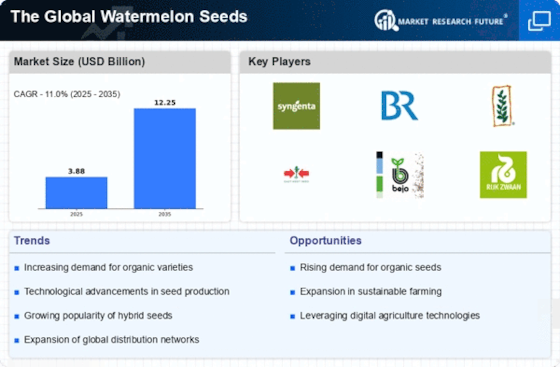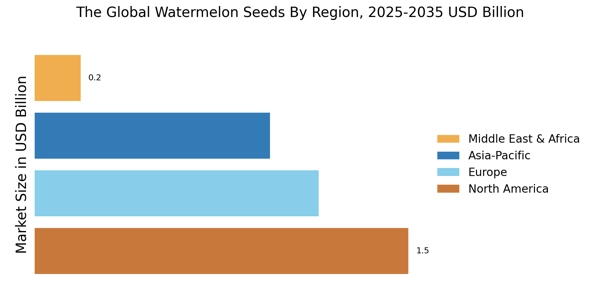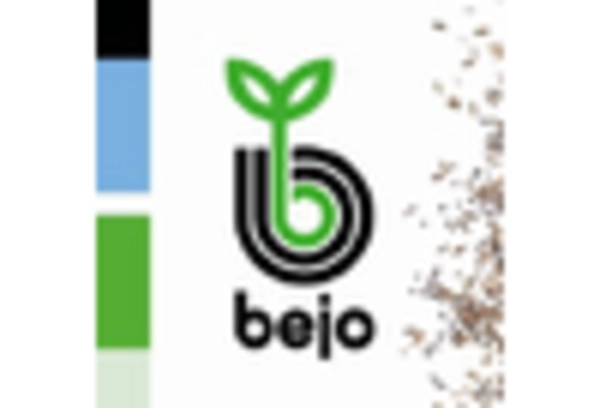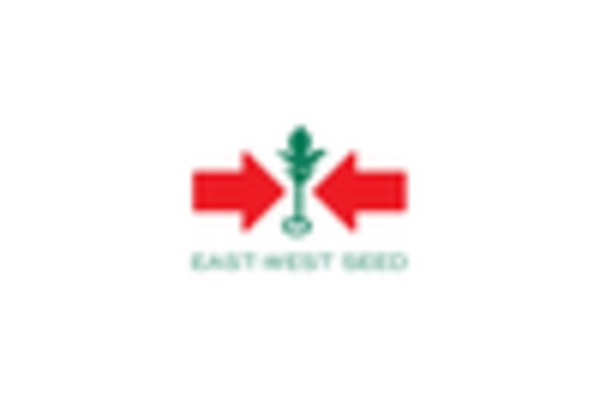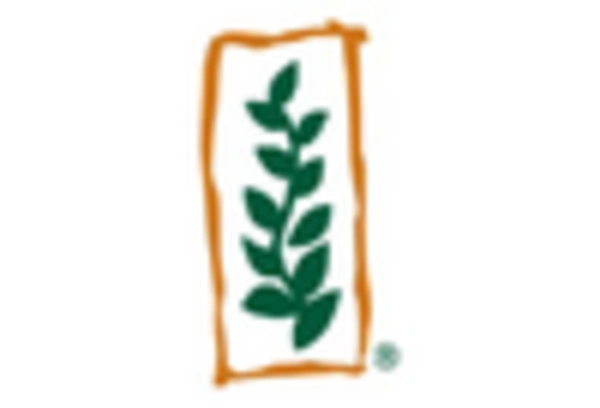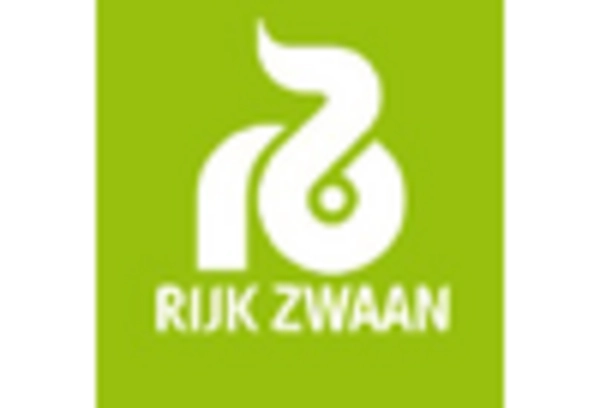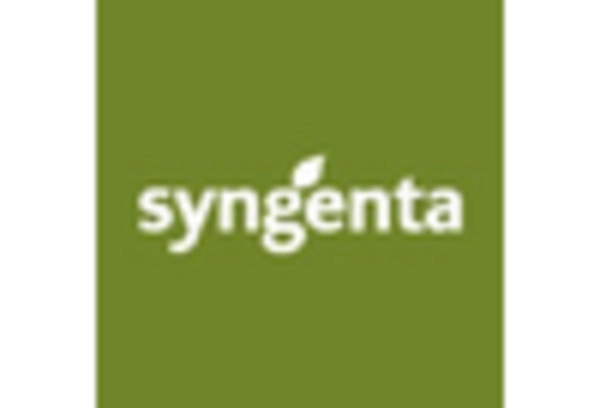Rising Health Consciousness
The increasing awareness regarding health and nutrition among consumers appears to be a pivotal driver for The Global Watermelon Seeds Industry. As individuals seek healthier dietary options, watermelon seeds, known for their nutritional benefits, are gaining traction. These seeds are rich in proteins, vitamins, and minerals, making them an attractive choice for health-conscious consumers. Market data indicates that the demand for plant-based protein sources is on the rise, with a projected growth rate of approximately 7% annually. This trend suggests that The Global Watermelon Seeds Industry could experience significant expansion as more consumers incorporate these seeds into their diets, either as snacks or as ingredients in various dishes.
Emerging Markets and Urbanization
The rapid urbanization and economic development in emerging markets are likely to drive The Global Watermelon Seeds Industry. As urban populations grow, there is an increasing demand for fresh produce, including fruits and seeds. This urban shift often leads to changes in dietary preferences, with more consumers seeking nutritious and convenient food options. Market data suggests that regions such as Asia-Pacific are witnessing a surge in watermelon consumption, which could translate into higher demand for watermelon seeds. The urban population in these regions is expected to reach 3 billion by 2030, potentially creating a substantial market for watermelon seeds as part of a healthy diet.
Increased Agricultural Investment
Investment in agricultural practices and technologies is likely to bolster The Global Watermelon Seeds Industry. Governments and private entities are increasingly recognizing the importance of enhancing agricultural productivity to meet the growing food demand. This investment often translates into better seed varieties, improved farming techniques, and enhanced distribution channels. For instance, the global agricultural investment is projected to reach USD 1 trillion by 2025, which could significantly impact the watermelon seed sector. Enhanced funding for research and development may lead to the introduction of high-yield and disease-resistant watermelon seed varieties, thereby stimulating market growth and ensuring sustainability in production.
Expansion of Culinary Applications
The versatility of watermelon seeds in culinary applications is emerging as a notable driver for The Global Watermelon Seeds Industry. These seeds are not only consumed as snacks but are also being incorporated into various dishes, including salads, smoothies, and baked goods. The culinary trend towards innovative and diverse food options is likely to enhance the appeal of watermelon seeds. Market analysis suggests that the food industry is increasingly focusing on unique ingredients that offer both flavor and health benefits. This trend could lead to a surge in demand for watermelon seeds, as chefs and home cooks alike explore their potential in diverse cuisines.
Sustainability and Eco-Friendly Practices
The growing emphasis on sustainability and eco-friendly agricultural practices is influencing The Global Watermelon Seeds Industry. Consumers are becoming more discerning about the environmental impact of their food choices, leading to a preference for sustainably sourced products. Watermelon seeds, often produced through organic farming methods, align well with this trend. The organic food market is projected to grow at a compound annual growth rate of 10% over the next five years, indicating a robust demand for organic seeds, including watermelon. This shift towards sustainable practices may encourage more farmers to adopt eco-friendly methods, thereby enhancing the market for watermelon seeds.


